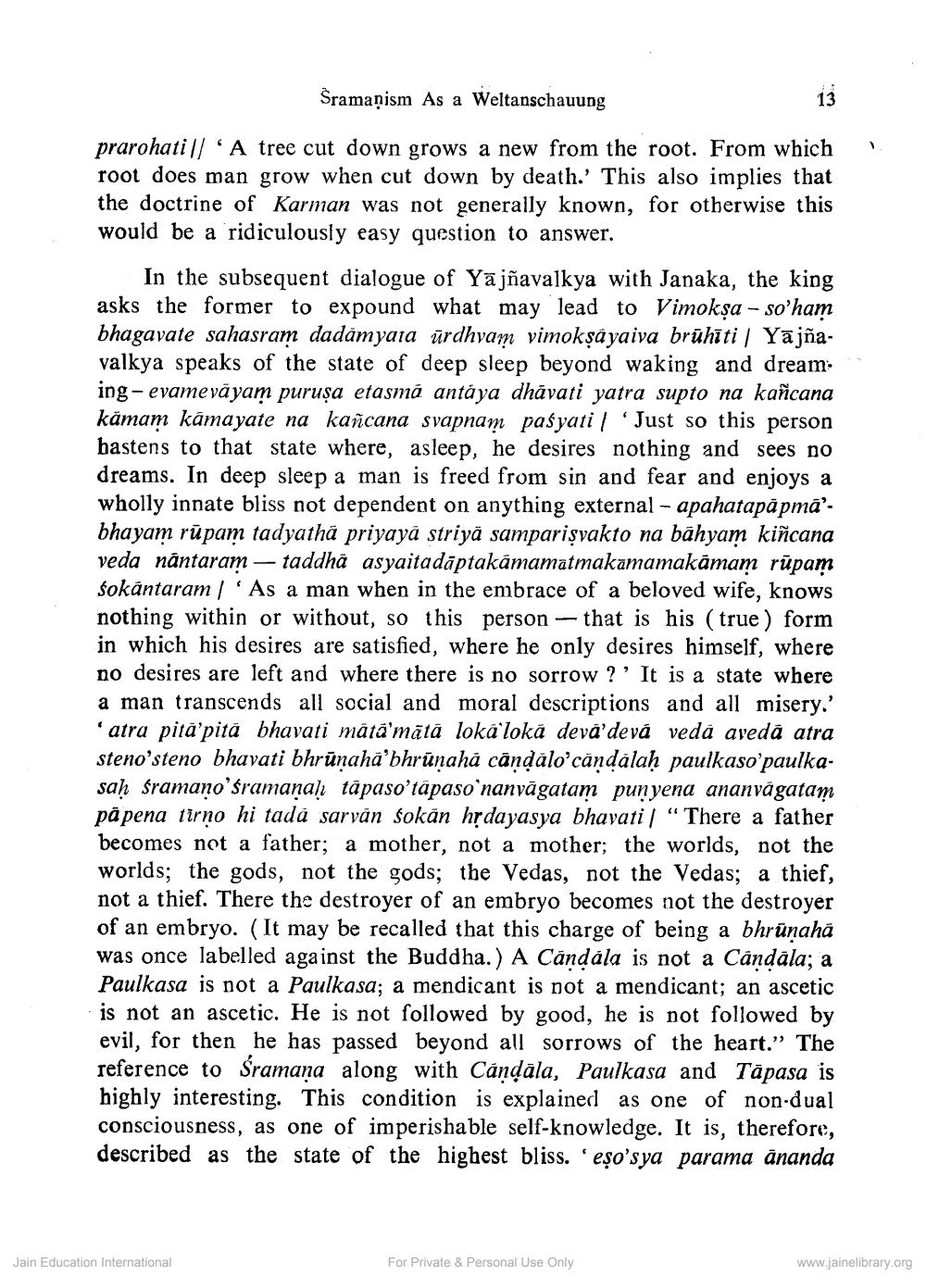________________
Sramanism As a Weltanschauung
prarohatill 'A tree cut down grows a new from the root. From which root does man grow when cut down by death.' This also implies that the doctrine of Karman was not generally known, for otherwise this would be a ridiculously easy question to answer.
In the subsequent dialogue of Yājñavalkya with Janaka, the king asks the former to expound what may lead to Vimokṣa - so'ham bhagavate sahasram dadamyara ürdhyam vimokşayaiva brūhīti / Yājñavalkya speaks of the state of deep sleep beyond waking and dream: ing-evamevāyam puruşa etasmă antaya dhavati yatra supto na kañcana kämam kámayate na kañcana svapnam paśyati | Just so this person bastens to that state where, asleep, he desires nothing and sees no dreams. In deep sleep a man is freed from sin and fear and enjoys a wholly innate bliss not dependent on anything external - apahatapāpmā’bhayam rūpam tadyatha priyayā striyā samparişvakto na bāhyam kiñcana veda nāntaram — taddhā asyaitadāptakamamatmakamamakāmam rūpam sokäntaram / 'As a man when in the embrace of a beloved wife, knows nothing within or without, so this person that is his (true) form in which his desires are satisfied, where he only desires himself, where no desires are left and where there is no sorrow ?' It is a state where a man transcends all social and moral descriptions and all misery.' 'atra pita'pitā bhavati māta'mātā lokā loká devá'devá vedå avedā atra steno’steno bhavati bhrūnaha'bhrūnahá cândalo'candalah paulkaso'paulkasah framano'śramanah tåpaso'täpasonanvāgatam punyena ananvágatam pápena tirno hi tada sarvan sokan hệdayasya bhavati / “There a father becomes not a father; a mother, not a mother; the worlds, not the worlds; the gods, not the gods; the Vedas, not the Vedas; a thief, not a thief. There the destroyer of an embryo becomes not the destroyer of an embryo. (It may be recalled that this charge of being a bhrūnaha was once labelled against the Buddha.) A Cándála is not a Cåndāla; a Paulkasa is not a Paulkasa; a mendicant is not a mendicant; an ascetic is not an ascetic. He is not followed by good, he is not followed by evil, for then he has passed beyond all sorrows of the heart." The reference to Sramana along with Candāla, Paulkasa and Tāpasa is highly interesting. This condition is explained as one of non-dual consciousness, as one of imperishable self-knowledge. It is, therefore, described as the state of the highest bliss. 'eşo'sya parama ananda
Jain Education International
For Private & Personal Use Only
www.jainelibrary.org




